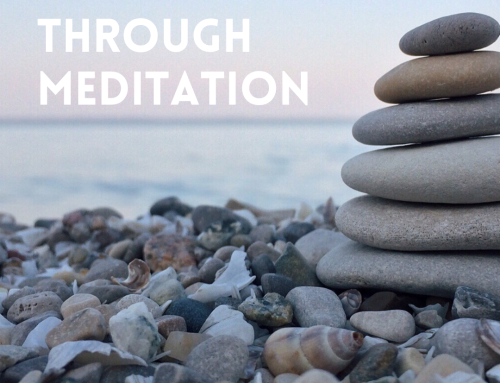Three Cautions and Encouragements for Dads
by: Dustin Crowe
Staff members at Pennington Park Church
I didn’t grow up camping, but as a husband and father, I’ve decided I want our family to be a family that camps.
In my head, camping with our daughter will lead to memories she will enjoy forever. In order to get started on this journey, I picked up some basic camping gear, including a six-person tent (we’d like to enjoy the outdoors without roughing it too much, so we ensured the tent was big enough for small air mattresses).
Recently we practiced setting up the tent. I wanted my daughter to enjoy it as soon as possible and thought we should test it out in the safety of the backyard. In my mind, we were taking the first step into my fantasy of beautiful family memories and Instagram-worthy pics.
The setup started well, but my two-year-old daughter soon began undoing the tent poles as I laid them out. I guess I should have expected this from her since she’s two and she just wanted to help, but sometimes her help isn’t helpful. All I could think of was how my plans for this amazing time were being interrupted by her desire to help and play.
After telling her to stop a couple times, my tone shifted and I barked, “Don’t touch those poles again!” and “I told you not to do that!” She’s sensitive (already), so it led to flooding tears and thunderous cries—a full-blown emotional storm.
Cause for Reflection
My wife was kind enough to point out that I was too mean. I defended myself by saying my daughter needed to listen. Though right, I was also wrong.
My daughter does need to listen, and it’s sometimes necessary to be firm, but my response was more about my frustration than about the caring guidance of a father. My plans for the day had quickly become more important than loving my daughter well. My angry tone hurt her more than it helped her see the need to obey. I had to admit my failure and ask for her forgiveness (always a bitter pill to swallow).
As I reflected on the experience, I asked myself, How could I better reflect God’s fatherly love to my daughter? Here are three cautions for dads that came out of that reflection.
Be Firm Without Being Harsh
All kids are sinners, so we shouldn’t be surprised when they’re stubborn and selfish. They inherited more than looks from mom and dad.
Children need boundaries. They need to be taught right and wrong. God gifts parents to instruct children on what’s true versus false, good versus evil, and right versus wrong. Kids need a loving adult to enforce rules meant for their good.
This requires being firm. By being firm, I mean explaining and enforcing boundaries. Children must learn that just because they want to do something, it feels right, or it seems like a good idea, doesn’t mean they should do it.
My young daughter is attracted to scissors. She would happily carry scissors around the house, cut a chunk out of her hair, jump on the couch with them in hand, and even glide down her backyard slide with them.
“Being firm in a situation like this is not opposed to showing love; rather it is a means of love.
But, in case you’re getting worried, if I ever see her handling scissors inappropriately, I tell her “No” in a firm but loving way. I guide her to see this non-negotiable rule as a means for her good. Being firm in a situation like this is not opposed to showing love; rather it is a means of love.
Where many dads need to be careful is not moving past being firm and into being harsh. Speaking or acting harshly is acting out of frustration, anger, and annoyance. It’s responding in unloving and hurtful words, behaviors, tones, or expressions. The Bible not only prohibits outright abuse—an obvious sin—but it also warns against even using harsh words (see Prov. 15:1).
When I told my daughter to leave the tent poles alone, she should have obeyed the first time. It wasn’t necessarily a bad thing for me to be frustrated by my daughter’s repetitive disobedience, or even to be irritated when she disconnected all the poles and I had to start over. It was okay to be firm in asking her to obey.
However, I crossed the line when my frustration spilled out in harsh words. When my eyebrows flew back, my eyes bulged, my nose flared, my voice went up, and my words became cutting. At that point, I was no longer lovingly correcting her. I was acting out in anger.
My goal as a dad is to—as much as possible and knowing I will be imperfect—reflect the image of God to my children.
God is firm but never harsh. He is serious about us learning to walk in his ways, and he is committed to our good. But he never condemns or berates his children. Rather, he pursues our good with patience, understanding, compassion, and steadfast love.
Aim for Encouragement and Avoid Exasperation
The second half of Ephesians 6:4 tells parents, fathers in particular, to bring children up in the discipline and instruction of the Lord. But the first half of the verse begins with an exhortation: “Do not provoke your children to anger” (ESV). Other versions translate “provoke” as “exasperate,” “embitter,” or “aggravate.”
Paul knows dads will be tempted to criticize, point out problems, nit-pick, even nag their kids for what they see as problems, weaknesses, or shortcomings. But this behavior doesn’t build up; it tears down. No child wants a drill-sergeant for a dad, and when we are always on their case, we embitter and exasperate them. We’re told this leads to anger (Eph. 6:4) and discouragement (Col. 3:21).
“No child wants a drill-sergeant for a dad, and when we are always on their case, we embitter and exasperate them.
There are moments parents need to offer constructive feedback, speak hard truths, and point out problematic behaviors, but this should not be our typical response. We should instead aim to encourage, affirm, build up, and celebrate with our children.
Tell your kids every day what they’re doing well, what you love about them, and what you see in them. Make it clear you’re for them, not against them. Tell them you love them. Convince them you’re proud of them. It’s not just a fatherly privilege, it’s a basic Christian calling (1 Thess. 5:11).
Encourage rather than exasperate. Delight in rather than discourage. Affirm rather than alienate. Celebrate rather than criticize.
Don’t Let Your Plans Get in the Way
When I was setting up our new family tent, a big part of my frustration sparked because I had plans and my daughter interrupted them. Most of our anger and annoyance happens when our plan (or our kingdom) becomes threatened or disturbed.
The very people we’re trying to serve and love become the problem in our eyes. They ruin our plan—even if that plan is to make memories with them—so we get angry.
When my daughter delayed getting our tent set up, I was more concerned about finishing the job and creating a great experience than I was about her. The idol of my plan ended up keeping me from loving my daughter well. That’s what idols do. They ruin and rob the things we hope for.
I should have prioritized my relationship with her, but instead I elevated my plans. If I had the right perspective, I would have enjoyed her presence and extended patience. Plans are good to have, and it made sense in my case to want to get the tent set up, but the plan is not the most important thing. Being a good dad who teaches his daughter and exhibits patience is much more important.
Knowing our propensity to let our plans become ultimate, we must check ourselves when we feel our blood pressure rise when our agenda is threatened. We must pause. Breathe. Ask God for grace. We must enter into what our kids are doing rather than dragging them along as we speed towards the finish line of our to-do lists.
Rehearse the Gospel
Being a parent is hard. As much as we love our kids, they can sometimes wear us out. Only by God’s grace and the Spirit’s help can we die to self to serve them well. Only by reflecting on how God the Father treats us with kindness and grace can we reflect him to our children.
And only by rehearsing the gospel of Jesus can we find both the power to pursue these things and the forgiveness and grace when we fail.
Originally posted on The Gospel Coalition Discipleship





